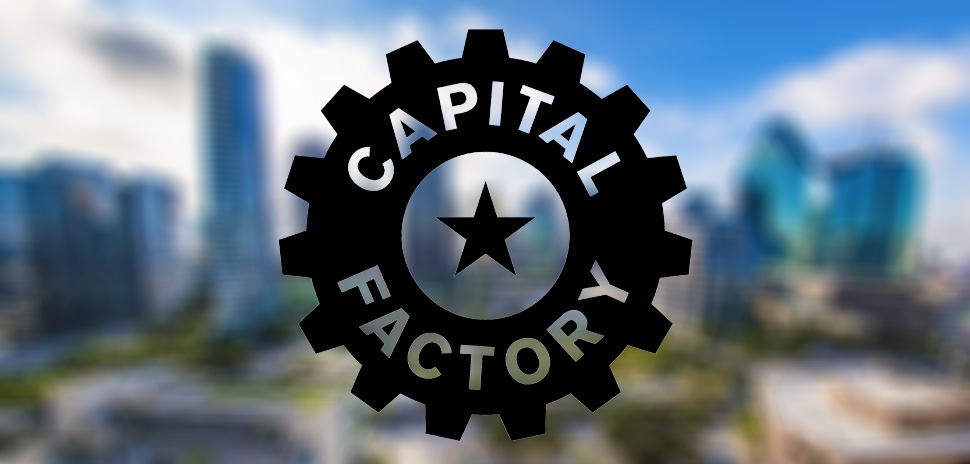When the pandemic began last March, Capital Factory was hit fast and hard.
Capital Factory, a startup centric organization dubbed as the “center of gravity for entrepreneurs in Texas” and the most active early-stage investor in Texas, hosts hundreds of networking meetups and events each year—they are the connective tissue for entrepreneurs, mentors, and investors across Texas.
As COVID-19 began to spread across the states, South by Southwest (SXSW) was one of the first international conferences and festivals to be canceled. The loss of the annual event was a major blow to the region and many organizations like Capital Factory that participate and benefit from the massive tech festival in downtown Austin.
Then, amid the lockdown in April, Capital Factory was set to host its second annual Black in Tech Summit and $100K Investment Challenge.
“In the wake of the pandemic, the easy thing to do would have been to say, ‘OK, let’s take a step back here and reschedule this event’ but we decided to proceed,” said Bryan Chambers, Vice President of Ventures at Capital Factory. “And I’m so glad we did because we learned so much.”
The Black in Tech Summit was Capital Factory’s first fully virtual event of 2020 with record attendance and the venture fund awarded a $100,000 investment in Riana Lynn’s Journey Foods, a sustainably driven data service and product management software for food companies.
“Our Diversity in Tech event series is one way we celebrate diversity, equity, and inclusion with startups and investors,” Chambers said. “And I think it meant a lot to our team and community to follow through with our commitment to grow our portfolio of diverse founders.”
The 3rd Annual Black in Tech Summit presented by Deloitte will be hosted virtually for the second year in a row from noon to 2:30 PM on April 13.
Today, a year later, all core strategic divisions of Capital Factory, from virtual events, programs, to investment challenges are seeing record high engagement and participation.
“More startups, investors, and corporations are joining Capital Factory than ever before,” Chambers said. “Capital Factory and our growing portfolio of startups ended up having one of the best years yet, but perhaps one of the most challenging years, too.”
Embracing and scaling a virtual-first business model in the wake of the pandemic allowed Capital Factory to facilitate more connections for startups with investors and customers resulting in increased participation and outcomes. The number of virtual office hours between startups meeting with mentors and investors was higher than ever.
“Supporting and investing in diverse entrepreneurs has been a core part of Capital Factory ever since I can remember,” Chambers said.
To increase diversity, Chambers said Capital Factory is working hard on not only diversifying its network of mentors and investors, but also its team.
“We know that one of the ways we can improve is by continuing to expand the diversity represented on our own team, in addition to adding more diverse members to our mentor and investor networks,” Chambers said.
While Capital Factory has excelled in the virtual world, Chambers said he knows the physical world will soon return, as well as the inspiration and the high levels of energy that are harder to create virtually.
“I suspect physical events, meetings, and office work will quickly become popular again but the new normal is going to land somewhere in the middle for the technology sector,” he said. “I’m optimistic that we’re going to get the best of virtual and the best of physical and I think it’s going to create a fantastic set of new benefits and opportunities and that excites me.”
Trends in Tech
The last 2008-09 recession produced some of today’s most successful startups, like Uber, Airbnb, and Pinterest, now worth a combined $25B, according to the Wall Street Journal.
Today, despite the many job losses and business closures due to COVID-19 restrictions and low levels of consumer spending, Americans started new businesses at record-breaking levels.
New business applications were the highest on record in 2020—up 24 percent from the previous year, according to the U.S. Census Bureau’s Business Formation Statistics. By the end of 2020, nearly 4.5 million new business applications were filed, 51 percent higher than the 2010-2019 average, according to a recent report from the Economic Innovation Group.
Chambers said there is no doubt Capital Factory’s busiest year yet, assisting entrepreneurs and startups during the pandemic, has correlation to the record-breaking new business starts and relocations to Texas brought on by the pandemic.
“We think the trend is real and it’s still early for Texas. COVID has accelerated success and failure for so many businesses and the sheer volume of startup opportunities is increasing, especially for our region,” he said. “And you’re likely to start a much better business in the wake of COVID than you had pre-COVID, and I think that represents an exciting opportunity for a lot of people to take action.”
Technology allows businesses to be inherently more competitive and scalable. Today, most new business is tech-enabled, and technology is core to its strategy and success.
“It’s no secret the tech sector gained rapid adoption during the pandemic, but we’re also seeing the emergence and adoption of entirely new sectors like the metaverse,” he said. “Biosecurity solutions and workforce safety platform, Return Safe, is yet another an example of a Texas-based startup that is pioneering a new category.”
The pandemic has forever changed the way we work, order food, shop online, and more. COVID accelerated advances in performance technology by five, and maybe even 10 years in some cases, Chambers said.
“Walkabout Workplace is a new type of virtual office experience that can augment a physical office environment. I think workspace platforms like Walkabout have a lot of potential,” he said.
During work-from-home orders, established platforms like Slack and Zoom kept employees connected. Chambers thinks new developer and workforce collaboration tools will continue to gain rapid adoption. Examples of a sector that will gain rapid adoption are new apps and software that help restaurants streamline online orders and make contactless payments.
Other sectors seeing meaningful startup investment include telemedicine, at-home diagnostic testing, cloud and distributed work applications, autonomous drones and robots, workflow automation and performance, like Dallas-based AmplifAI, which embeds technology solutions in physical or virtual call centers to help employees improve performance through automated learning and assessments.
Future of Work
For Chambers, all the new advancements in tech doesn’t necessarily mean less jobs, but a shift in new skillsets for students and employees who stand to win big from embracing technical environments.
The future of work will require universities to upskill for new types of technologies. The pandemic-spurred innovation in software and hardware will play a huge role in the next decade, he said.
“Robotics and automation will become more affordable for smaller and middle market-oriented companies to adopt and it will drive more value to the bottom line,” he said.
Gravity of Texas
One major trend and opportunity for Texas is the transition from oil and gas to clean and sustainable technology, and Texas has a unique advantage to be a global leader.
Texas’ growing population from business relocations can also be seen in the startup networks. Some of Silicon Valley’s top venture capitalists, mentors, investors, and founders are relocating to Texas.
“The gravity of Texas was already strong and growing fast before COVID and COVID has accelerated growth across the board for Texas,” Chambers said. “I think this is the reality for many industries including startups and venture capital in Texas. People can read more about why we are so bullish on Texas in the Texas Startup Manifesto 2.0.”
A version of this story first appeared on the Dallas Regional Chamber site. Dallas Innovates is a collaboration of D Magazine Partners and the Dallas Regional Chamber.
![]()
Get on the list.
Dallas Innovates, every day.
Sign up to keep your eye on what’s new and next in Dallas-Fort Worth, every day.


































































